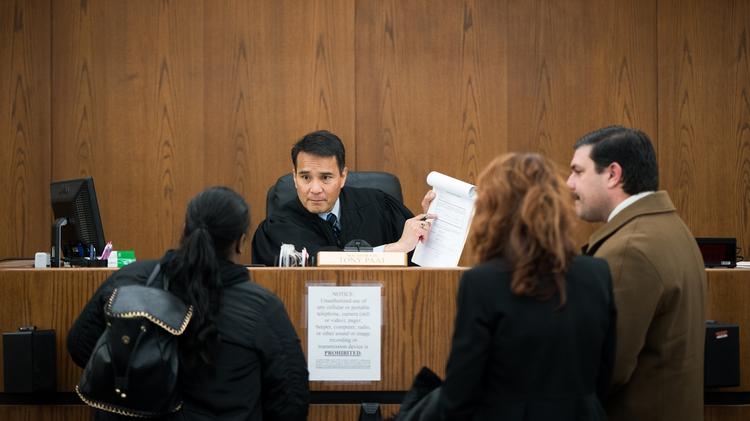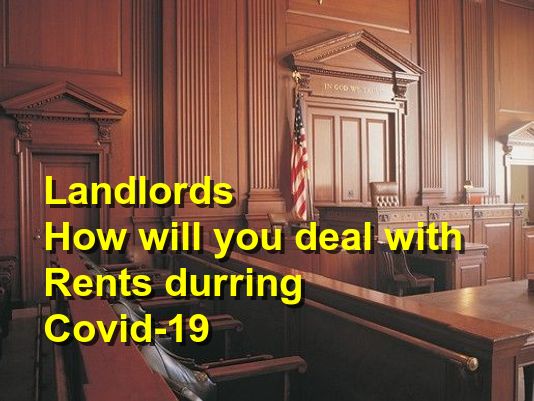How to Read a Lease 101
How to Read a Lease 101
Someday, between the time you move out of your childhood home and when buy your first residence, you’ll probably find yourself staring at a lease. A lease is a contract between someone who owns real estate (the landlord) and another person who occupies that piece of real estate (the tenant), covering the conditions under which the tenant may possess, occupy, and use the property.
Reading a lease can be befuddling, and often the first impulse is to just go ahead and sign the thing, rather than try to wade through and decipher all the legal language. However, it’s important to understand that a lease is a legally enforceable agreement, and you could find yourself in a predicament later on if you fail to abide by the terms–the very ones you agreed to by signing on the dotted line. Before you sign, take the time to read the entire document.
Here’s what to look for in a lease to rent a dwelling, be it an apartment or a house.
KEY TAKEAWAYS
- A lease is a contract between someone who owns real estate (the landlord) and another person who occupies that piece of real estate (the tenant).
- A lease details the conditions under which the tenant may possess, occupy, and use the property.
- Details about any deposits—such as an upfront security deposit or fees for parking or pets—should also be clearly stated in your lease, along with conditions for getting your money back.
- In some rental arrangements, the landlord is responsible for taking care of all repairs and maintenance—whether it’s a leaky faucet or a broken air conditioner.
- There are also agreements where the tenant is responsible for all the costs of repairs and maintenance.
- If you have a pet, read the lease to find out if animals are allowed, and if so, whether there are any size or breed-specific restrictions.
Include Property Details
The lease should include basic facts and data about the property, including the physical address and the landlord’s name and contact information. It should also state the date the lease was signed; the beginning and end dates of the rental period; and options for lease renewal, including policies for rent increases. If any appliances are in the unit (such as a range, refrigerator, or washing machine), or if the unit is furnished, that should be included, too.
Define Deposit, Rent, and Fee Amounts
People tend to pay close attention to how much rent will cost each month, but there may be other costs that should be noted as well, including various deposits and fees. Details about any deposits—such as an upfront security deposit or fees for parking or pets—should also be clearly stated, along with conditions for getting your money back.
The lease should state particulars about the rent:
- Monthly amount due
- When it is due
- Methods of acceptable payment
- Any allowable grace period for late payment
- Amount of any late fees
Utility Inclusion
The lease should indicate policies regarding utility service and billing. Be sure to find out which, if any, utilities are included as part of your monthly rent, and whether you are expected to cover any of the costs.
Some landlords, for example, pay for electric, water, and sewer services, while the tenant pays for cable and Internet.
Repairs and Maintenance
This is something to pay close attention to since it can end up costing a lot of money, time, and headaches. In some rental arrangements, the landlord is responsible for taking care of all repairs and maintenance—whether it’s a leaky faucet or a broken air conditioner.
In other situations, the landlord might repair or replace only major appliances but leave the tenant responsible for everything else. And then there are agreements where the tenant is responsible for all the costs of repairs and maintenance. There may also be stipulations about the maintenance of the yard or outside areas.
As you can see, it’s imperative that you read the lease to determine your landlord’s responsibilities—as well as yours—when it comes to repairs and maintenance issues. Make sure you’re clear on who pays for what, who arranges service calls, and the amount of time you and your landlord have to address any issues.
Pet Policy
If you have a pet, read the lease to find out if animals are allowed, and if so, whether there are any size or breed-specific restrictions (some rental properties allow most dogs, but not pit bulls, for example).
You might be required to pay a “pet deposit” that may or may not be returned once you move out (assuming no pet damage). Sometimes the “pet fee” is nonrefundable because it is used for treating the space for fleas and deodorizing and shampooing the unit’s flooring and upholstery after you move out.
In some cases, you might also pay “pet rent,” a monthly or yearly fee tacked on to your rent to cover normal wear and tear from pets.
If the lease contains a no-pets clause and you violate it by bringing a furry friend into your unit, the landlord generally has the legal right to evict you. A no-pets clause cannot be added to a lease once it’s signed, however, so your landlord can’t change the pet policy in the middle of your lease.
House Rules
The lease should describe the acceptable use of the property (e.g., “The premises shall be used exclusively as a private residential dwelling for the tenant and his immediate family only”), plus any policies for things like:
- Maximum occupancy
- Quiet hours
- Overnight guests
- Parking and storage
- Smoking
- Landlord right of entry
- Granting access to maintenance workers
- Property alterations
- Long absences (on your part)
- Insurance requirements
- Eviction
Early Termination
The lease should explain what you need to do before moving out. How much advance notice is required? What type of cleaning are you responsible for? The lease should also state your options if you have to move out before the lease expires.
Can you sublet the property, for example? If so, are you required to find the sublet tenant, or is that the landlord’s responsibility? What are the penalties for breaking the lease if you can’t find someone to sublet?
The Bottom Line
To make sure you understand what you’re getting into, take the time to read your lease. If there’s something you don’t understand, ask the landlord for clarification, or consult a local specialist in real estate law. Bear in mind that while many of these policies are at the landlord’s discretion, others (such as the landlord’s right of entry and eviction) may be regulated by state or city ordinances.
Once you and your landlord have signed the lease, it’s a very good idea to save a copy. This document can become important if any disagreements arise regarding the property or anything related to your tenancy.
Also, plan on doing a thorough property examination before signing the lease. Check the general condition of the property and make sure items such as appliances, faucets, plumbing, windows, and window fixtures are in good working order. Note and document any existing damage in the lease or in a provided damage assessment form, and keep a copy of this with your contract—just in case.
Tags: Leases & Contracts




 “Just as our Black neighbors experience violence in policing, they also experience the violence of displacement, of eviction, of housing discrimination,” said Council Member Mitra Jalali. “This housing agenda will insure stability for all St. Paul renters, especially the thousands of Black, brown, Asian, Latino, Indigenous and other working families of color.”
“Just as our Black neighbors experience violence in policing, they also experience the violence of displacement, of eviction, of housing discrimination,” said Council Member Mitra Jalali. “This housing agenda will insure stability for all St. Paul renters, especially the thousands of Black, brown, Asian, Latino, Indigenous and other working families of color.”

 Your lease is the contract between you and your tenant. For any contract to work and be legal, certain clauses are necessary. If these clauses are left out or are poorly written, the the landlord runs the risk of serious problems in the future. This post describes several clauses every lease should contain.
Your lease is the contract between you and your tenant. For any contract to work and be legal, certain clauses are necessary. If these clauses are left out or are poorly written, the the landlord runs the risk of serious problems in the future. This post describes several clauses every lease should contain.
 If, like many landlords, you own or manage only a few rental properties, you are unlikely to have a lawyer on staff or even “on retainer” (where you pay a lawyer in advance to handle routine questions and issues). Fortunately, you shouldn’t need to constantly consult a lawyer or even keep one in the wings, “just in case.” You do have to be able to recognize those situations when expert help is needed — even if it’s just for some advice and coaching.
If, like many landlords, you own or manage only a few rental properties, you are unlikely to have a lawyer on staff or even “on retainer” (where you pay a lawyer in advance to handle routine questions and issues). Fortunately, you shouldn’t need to constantly consult a lawyer or even keep one in the wings, “just in case.” You do have to be able to recognize those situations when expert help is needed — even if it’s just for some advice and coaching.









